As I was rummaging through my basement the other day, I happened upon one of my old college textbooks. I reacquainted myself with some Delphic maxims that, in college, I lived by. It dawned on me that these were actually also excellent community maxims to live by.
Blame my liberal arts education or the hours of Greek history study, but the Delphic maxim “know thyself” is ingrained in my head. The two maxims that follow, “know thyself”, “nothing to excess,” and “surety brings ruin”, are still so relevant I couldn’t quite believe I hadn’t thought about them in terms of community before now.
How do they apply from a community-building perspective? Let me explain.
Community Maxim #1: Know Thyself
So you’re building a community for your company. Do you know what they expect or want from your community? Who is your company? What do they stand for? What is the mission, vision or reason you are creating this community space?
“Thyself,” in this context, is your brand or company. To ensure organizational buy-in, it’s important to present a clear plan of what the community can look like and how it will impact the things that matter to leadership. A company obsessed with leads (MQLs) may not care about a sense of belonging but this doesn’t mean you abandon all hope. This is when you need to highlight a clear connection between how community creates belonging and impacts lead gen. You can’t just assume they get it.
For example, you can show how a healthy, vibrant community with unique content can and will attract potential customers. Measure and explain how this content has drawn in new prospects who are creating new accounts and actually converting. Or, show how the community content has impacted existing customers who have renewed or bought more. You can measure this community data holistically, along with CRM and sales.
As a community builder, the health of your community is absolutely your concern, and you should definitely be tracking it, but if you know what your company really cares about, make sure that you track and report it too.
Community Maxim #2: Nothing to Excess
One of the biggest mistakes I see people make when building communities is trying to be all types of community. Something you need to be clear on is who the community is for and who it is not for. You need to be specific.
It can be tough to narrow your community audience, but sometimes it’s crucial for success. Some of my greatest community-building successes came from focusing on a specific market and making it exclusive to those within that market.
However, excess is not only about the audience. It’s also about going crazy with plugins and features. What drew me to Vanilla all those years ago was the fact that it started with simplicity. Too many products on the market have an overwhelming number of features turned on by default, and in the long run, it can be detrimental to product adoption and customer experience.
Do you and your community a favour, and don’t over-complicate your community. Yes, it’s fun to have shiny, new plugins, but you need to remember what your online community is about; remember, “know thyself”. Keep that “simple” idea front of mind before enabling anything.
If a new feature encourages communication and connection, have fun – but also have a plan. For example, test it with your most passionate community members, get their feedback and certainly have a space in the community where you can tell everyone about it!
Community Maxim #3: Surety Brings Ruin
This final maxim I will utter until I die. It’s the one piece of advice I always live by. In the simplest terms – your assumptions can ruin your community. You should try to treat your assumptions as theories to be tested.
Talk to your community members and ask them for feedback – this is how you confirm a theory. It’s okay to try something out as a test, but communication with your audience is crucial. I can guarantee that you will fail if you don’t communicate. Making decisions, you’re “sure of” without consultation will rarely end well.
If there is an attitude of “non-consultation” in your company, you have to work on combating it. I see so many companies make the mistake of thinking that the community is theirs.
No company owns a community – I said it for you – and if you need backup, you can point them to this article! A company is renting a space for a community to gather. Making assumptions about what your community wants rather than asking them will lead your community to set up shop elsewhere – the community will still gather, just not in your space, leaving you with no centralized place to engage with them. So do the right thing and make sure you communicate with your community!
I guess that time in the basement clearing up some old books did a good number on me for inspiration. I hope you found some helpful tidbits. Now it’s your turn to find some inspiration!
—–
Article by Adrian Speyer – Vice President of Marketing & Community at Community Leaders Institute, and Author of The Accidental Community Manager

